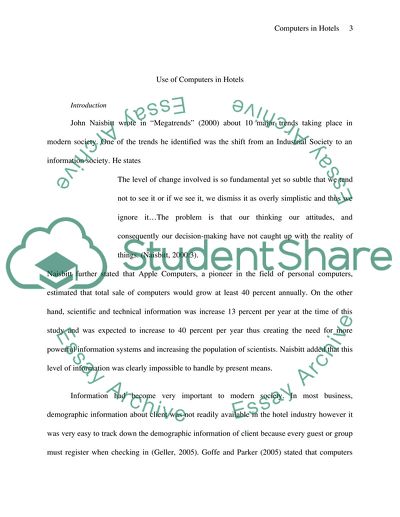Cite this document
(Use of Computers in Hotels Research Paper Example | Topics and Well Written Essays - 2500 words, n.d.)
Use of Computers in Hotels Research Paper Example | Topics and Well Written Essays - 2500 words. Retrieved from https://studentshare.org/tourism/1723529-facilities
Use of Computers in Hotels Research Paper Example | Topics and Well Written Essays - 2500 words. Retrieved from https://studentshare.org/tourism/1723529-facilities
(Use of Computers in Hotels Research Paper Example | Topics and Well Written Essays - 2500 Words)
Use of Computers in Hotels Research Paper Example | Topics and Well Written Essays - 2500 Words. https://studentshare.org/tourism/1723529-facilities.
Use of Computers in Hotels Research Paper Example | Topics and Well Written Essays - 2500 Words. https://studentshare.org/tourism/1723529-facilities.
“Use of Computers in Hotels Research Paper Example | Topics and Well Written Essays - 2500 Words”, n.d. https://studentshare.org/tourism/1723529-facilities.


